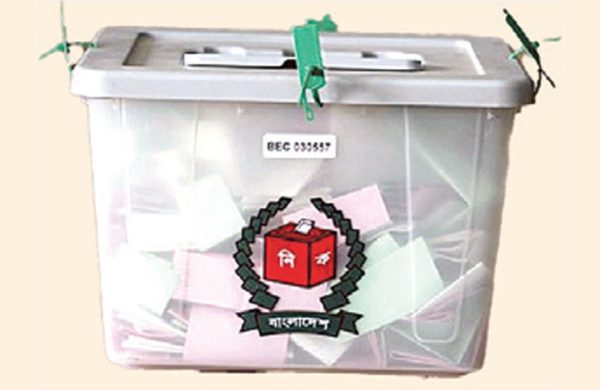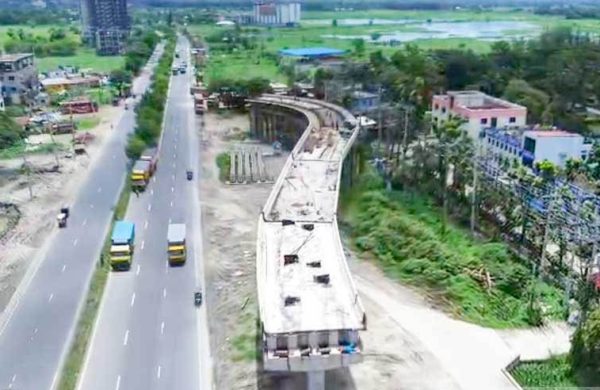Agricultural Price Commission- A Policy Priority
- Update Time : Tuesday, July 29, 2025

—Dr. M. Jamal Uddin—
Ensuring food security for the country’s growing population is the biggest challenge for agriculture. Declining agricultural land, loss of soil fertility and climate change are some of the biggest obstacles to agricultural production. Along with this, increasing production costs, sometimes not getting fair prices for farmers’ products and unstable prices of agricultural products are major obstacles to sustainable agricultural development.
The Agricultural Price Commission can play an important role in determining a minimum support price for farmers’ products, assisting in marketing and providing protection to farmers. In addition, the Agricultural Price Commission is needed to maintain price stability, make farmer-friendly policies, bring transparency and accountability in agricultural policies, reduce the dominancy of intermediaries; prevent the collapse of agricultural product prices or excessive price increases during droughts, floods or other natural disasters.
However, there is no such independent and effective Agricultural Price Commission in Bangladesh yet. As a result, the market for agricultural products becomes unstable and farmers are often deprived of getting fair prices. The Agricultural Price Commission is an independent and government organization, whose main responsibility is to help farmers determine fair, profitable and stable prices for their agricultural products and implement them. It analyzes agricultural production, production costs, market prices, import-export demand, etc. to determine a price that does not harm farmers and does not harass consumers.
Recently, on July 17, 2025 Food Security Network-KHANI Bangladesh has demanded the immediate formation of an independent and effective Agricultural Price Commission to ensure fair prices for the country’s farmers and to sustain the agricultural sector. This demand was made at a media cafe titled “Protection of Farmers: Why an Agricultural Price Commission is Needed” organized by KHANI and Participatory Research and Action Network-PRAN. The chief guest at the event was Secretary of the Ministry of Agriculture Dr. Md. Emdad Ullah Mian. The speakers in the discussion said that while there is an institutional framework for price determination in the electricity, tobacco and pharmaceutical sectors, the countries most important agricultural sector has not yet received such protection.
Chief guest Dr. Emdad Ullah Mian said, “The big challenge in the agriculture sector is data and statistics. For many years, a culture of data manipulation has been going on here. Accurate statistics can play an important role in the welfare of farmers.” He also said, “The government has identified 6 hotspots in agriculture and started work in 9 thematic areas and a 25-year agricultural plan is under preparation.” Such steps of the government will be useful for the welfare of the country.
Additional Secretary of the Ministry of Agriculture Dr. Mahmudur Rahman said at the event, “Like India, we are also considering a minimum support price (MSP). However, a special strategy is needed for implementation in perishable products. Agricultural loans worth Tk 37,000 crore have already been disbursed and direct discussions have been held with farmers to determine the price of paddy and rice.”
Agricultural Price Commissions have been formed under different names in many countries of the world to ensure fair prices for farmers. The experience of these countries shows that an effective price commission plays an important role in agricultural development, food security and market stability. The United States has implemented the USDA (United States Department of Agriculture) Price Support Program, where the government provides subsidies and, if necessary, purchases agricultural products to manage the market.
In Sri Lanka, the Price Control Commission or Special Price Board has been formed at various times to control and maintain fairness in the prices of agricultural products. In Pakistan, various committees work to determine the support price policy for agricultural products. The Chinese government directly determines the floor price and purchases major crops including rice and wheat from farmers. Although there is no specific “commission”, the government-designated agency performs the responsibility.
In India, the Commission for Agricultural Costs and Prices (CACP) was formed in 1965 to determine the minimum support price (MSP) of various agricultural products every season, which the government buys from farmers. In China, the government buys crops from farmers and builds public food stocks, which are distributed to the poor at low prices.
In China, India, and the United States, the role of the commission in preventing the decline in the prices of agricultural products brings stability to the market. With the assurance of a fair price, farmers are interested in cultivating more land, resulting in increased production. Even during droughts or heavy rains, the government can stand by the farmers by purchasing products at the announced price. In India, a minimum support price is under consideration for 23 products, but many policymakers believe that Bangladesh should think about implementing such a system for perishable products.
The formation of an agricultural price commission requires political commitment, institutional reforms, transparency in market management, and increased public awareness. If these obstacles are identified and progressed in a planned manner, the formation of the commission will be possible and effective. The Agricultural Price Commission is not just a government institution, but it can be one of the tools for the economic liberation of farmers.
This requires a legal framework, accurate and accurate data and political commitment. A policy decision needs to be taken under the leadership of the Ministry of Agriculture. An Agricultural Price Commission law needs to be formulated that will define the scope, responsibilities, powers and independence of the commission.
Determining the structure of the commission, creating a method for determining fair prices (analyzing the production costs of agricultural products in each season, determining the minimum support price considering market demand and supply); Modernizing the government warehouse and procurement system (the government should increase its capacity to purchase and store products from farmers at a fixed price and develop adequate storage, cooling systems and transportation systems) is required.
Market monitoring and information-based decision-making (the commission should analyze the production, market prices, import-export data of agricultural products using modern information technology and make decisions); Publicizing in simple language about the minimum price support, rules for depositing in warehouses and the work of the commission; It is also important to implement the law to control middlemen and coordinate with the mobile courts and market regulatory task force is also needed.
The “Agricultural Price Commission” is essential not only for the farmers, but also for the country’s food security, price stability and sustainable agricultural economy. It will restore the confidence of farmers, encourage higher production and strengthen the country’s economy as a whole. It will play a helpful role in highlighting agriculture as a more profitable and respectable profession. Therefore, strong political will, legal framework and institutional capacity building are needed to form an Agricultural Price Commission in the country, along with strong steps by the relevant policymakers.
——————————————————————————-
The writer is an agricultural economist, researcher and columnist



















